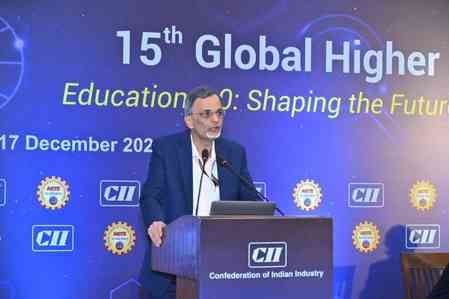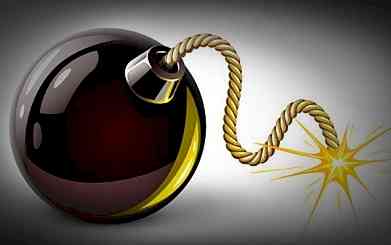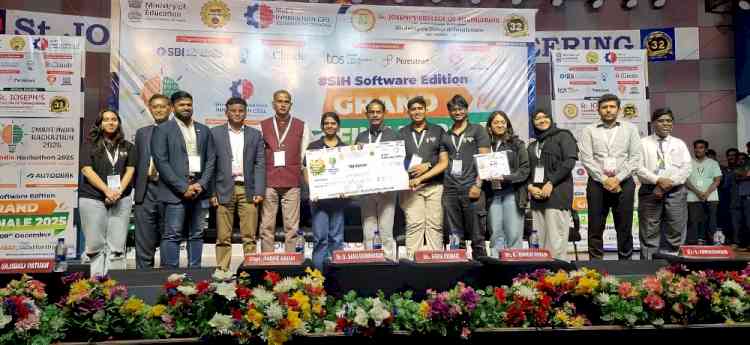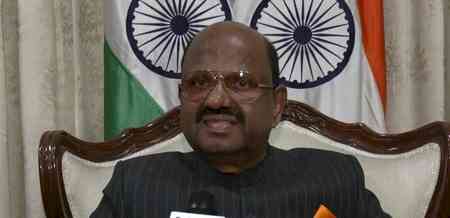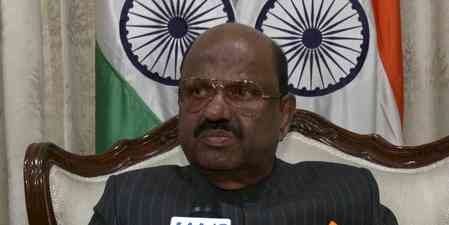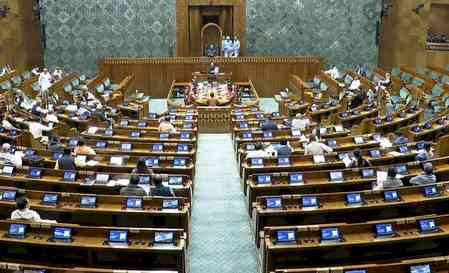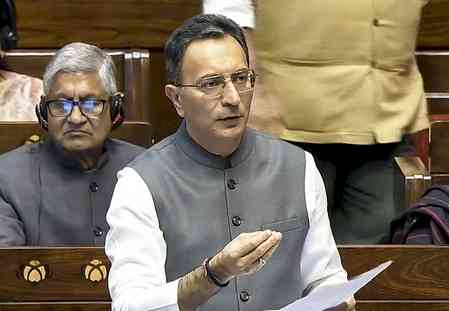Parthenium eradication campaign at UHF
The second phase of the parthenium eradication campaign was held today at the Dr. YS Parmar University of Horticulture and Forestry (UHF), Nauni. The Department of Environmental Science organized the event under the Swachh Bharat Abhiyaan. The campaign was sponsored by NAHEP IDP. All the university students, faculty and staff took part in the drive.
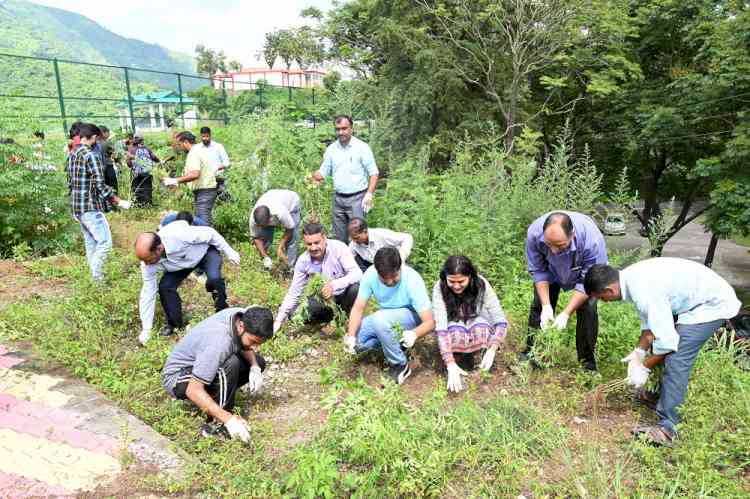
The second phase of the parthenium eradication campaign was held today at the Dr. YS Parmar University of Horticulture and Forestry (UHF), Nauni. The Department of Environmental Science organized the event under the Swachh Bharat Abhiyaan. The campaign was sponsored by NAHEP IDP. All the university students, faculty and staff took part in the drive.
To undertake the drive, the staff and students were divided into five teams with each group assigned the task of removing parthenium from different areas of the university. This drive was carried out under the watchful eyes of group facilitators and field guides. The proper disposal of the uprooted weeds was ensured by the disposal team.
Addressing the gathering of staff and students, Professor Rajeshwar Singh Chandel, Vice-Chancellor said it was heartening to see the students and staff recognizing their duties as responsible citizens and engaging themselves in social programmes. He said that parthenium has now become a threat to biodiversity and urged everyone to continue this exercise throughout the year and make it a part of the daily routine. He also spoke about the impact of parthenium on biodiversity and agricultural production.
Earlier, Dr. Sanjeev Kumar Chauhan, Director of Research urged the university students to spread awareness of the weed and ensure complete eradication of this weed from the campus and nearby areas. Dr. SK Bhardwaj, Professor and Head, Department of Environmental Science gave an overview of the programme and the need for the eradication of the parthenium weed. He informed that this was the second phase of the parthenium eradication undertaken on the campus. The first phase was carried out in the month of July before flowering. In the second phase, the new plants which have grown were removed. Dr. MS Jhangra, coordinator of the programme thanked the over 900 participants who took part in the campaign.
Parthenium weed is considered to be a cause of allergic respiratory problems, contact dermatitis and mutagenicity in humans and livestock. Owing to this weed’s aggressive growth, it leads to a reduction in crop production and threatens biodiversity.


 City Air News
City Air News 
